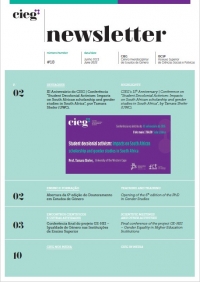The BO(U)NDS project intends to conduct a longitudinal study based on a mixed methodology and the hermeneutical comparison between Portugal, Germany, UK, Greece and Brazil. The assumptions are that an intervention program at school level with children, adolescents and young people is more effective and has long-term effects if the content focuses on the structural and cultural bases of gender and domestic violence, and if they are appropriate for the development of the child and use holistic and creative pedagogical approaches. Interventions in schools can be based on normative actions, affirmative actions or transformative actions (Arnot, 2009).
The BO(U)NDS project seeks to understand in depth what works in primary prevention to have long-term effects on the lives of young people. Working with focus groups and biographical narratives with young people who have been attending, for more than five years, programs for the prevention of gender violence in a school context, the aim is to understand the obstacles and successes of integrating values of non-violence and values of gender equality in their lives.
At the same time, teachers, facilitators and policy makers will be asked about the difficulties and possibilities of implementing holistic, systematic and effective programs to prevent gender-based violence in schools.
The project is promoted by the Faculty of Psychology and Education Sciences of the University of Porto and funded by the Portuguese Foundation for Science and Technology (FCT). It is coordinated by Maria José Magalhães.

